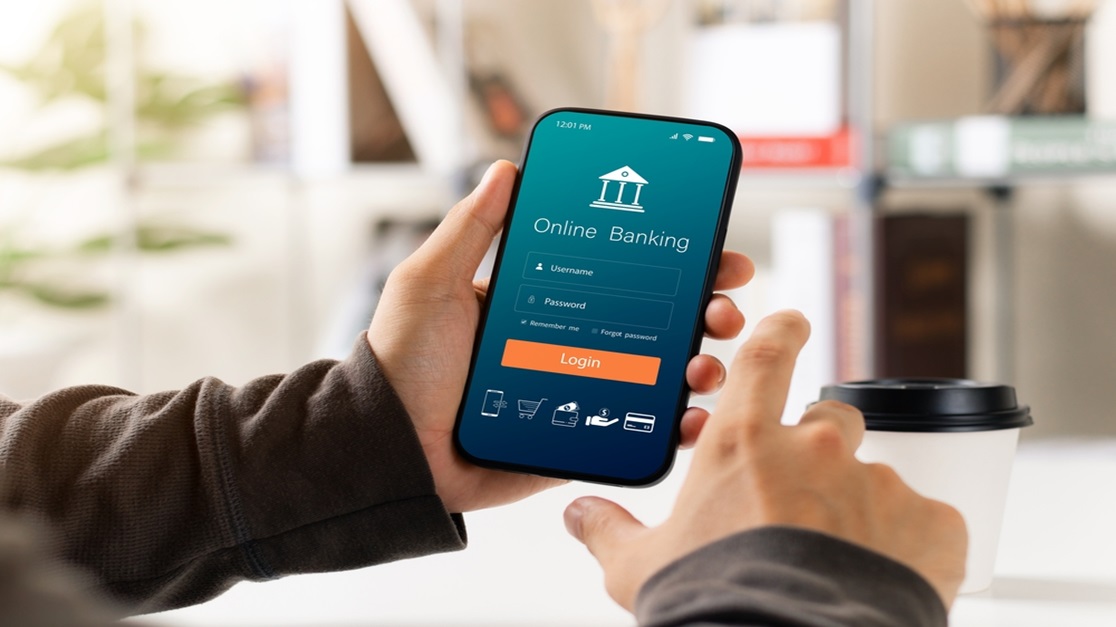Demystifying MMID (Mobile Money Identifier) How to Use It for IMPS Transfers
September 01, 2025

IMPS (Immediate Payment Service) is a real-time interbank electronic funds transfer system in India that allows quick and hassle-free daily P2A (person to account) fund transfers of up to ₹5 lakh (per transaction) and up to ₹10 lakh (daily transaction limit). P2A transfer happens when you don’t have the beneficiary’s MMID or Mobile Money Identifier number. Instead, you use the beneficiary’s bank account details and IFSC code. Adding account details can be a hassle for money. This is where P2P (person to person) IMPS service comes in. With IMPS (P2P) transfers, all you need to have is the beneficiary’s mobile number and Mobile Money Identifier (MMID) number.
But what exactly is MMID, and how can you use MMID for IMPS transfers?
What is MMID?
MMID stands for Mobile Money Identifier. It is a unique 7-digit number assigned to customers by their banks upon registering for transferring money via mobile. With MMID, you can initiate Immediate Payment Service (IMPS) transfers without having to provide the recipient's bank account number and IFSC code.
Think of MMID as a virtual ID that allows you to identify yourself during Immediate Payment Service transactions. It eliminates the need for multiple details and simplifies the transfer process, making it faster and more convenient.
To generate your MMID, you need to register for mobile banking with your bank. Once registered, the bank will allocate a unique MMID linked to your account. Let's explore how you can use this MMID for IMPS transfers.
Using MMID for IMPS Transfers
To use MMID for IMPS transfers, follow these simple steps:
- Open your banking app or access the mobile banking service provided by your bank.
- Navigate to the 'Fund Transfer' or 'IMPS' section.
- Select the option to transfer funds using MMID.
- Enter the recipient's mobile number and MMID correctly.
- Specify the transfer amount and verify all the details.
- Confirm the transaction using your mobile banking credentials (PIN, password, or biometric authentication).
- Once confirmed, the funds will be instantly transferred to the recipient's account.
How to Generate MMID?
The 7-digit Mobile Money Identifier (MMID) is created by the bank itself. The unique number is provided by the bank to its customers using mobile banking services of the concerned bank. You can generate MMID via Net Banking, Mobile Banking, Phone Banking, etc.
Benefits of Using MMID for IMPS Transfers
Using MMID for IMPS transfers offers several benefits:
- Convenience: MMID make the process of transfer easy eliminating the need for multiple details, making transactions quicker and more convenient.
- Security: Since MMID is linked to your bank account, only authorised users can initiate transactions using their unique MMIDs, ensuring enhanced security.
- Instant Transfers: IMPS transfers using MMID are processed instantly in real-time, allowing recipients to receive funds immediately.
- Availability: IMPS transfers can be initiated 24/7, including weekends and holidays, ensuring you can send money whenever you need to.
Example
Let's consider a real-life scenario where MMID proves to be extremely beneficial.
Rahul is travelling out of town and realises he forgot his wallet at home. He needs urgent funds to pay for his hotel room. Luckily, Rahul has his mobile phone and access to his banking app. With the help of MMID and Immediate Payment Service, Rahul can quickly transfer money from his account to the hotel's account without any hassle or delay. This saves him from any inconvenience and ensures a smooth stay.
Final Thoughts
In conclusion, MMID plays a crucial role in simplifying mobile money transfers through IMPS. By utilising this unique identifier, you can enjoy instant transactions, enhanced convenience, and secure transfers without compromising on safety.
To leverage the benefits of IMPS and use MMID for seamless money transfers, ensure that you have registered for mobile banking with your bank. Familiarise yourself with the process of generating an MMID and make use of it whenever you need to send or receive money instantly.
Now enjoy easy banking with Ujjivan Small Finance Bank. Save more with our high-interest Savings Account and Deposit products. Need cash for your business or personal needs? Apply for MSME Loans or Micro Loans with us – we offer competitive rates and quick disbursal. We also offer vehicle loans and home loans tailored for your unique requirements. Experience a smooth banking journey with Ujjivan SFB!
Disclaimer:
The contents herein are only for informational purposes and generic in nature. The content does not amount to an offer, invitation or solicitation of any kind to buy or sell, and are not intended to create any legal rights or obligations. This information is subject to updation, completion, amendment and verification without notice. The contents herein are also subject to other product-specific terms and conditions, as well as any applicable third-party terms and conditions, for which Ujjivan Small Finance Bank assumes no responsibility or liability.
Nothing contained herein is intended to constitute financial, investment, legal, tax, or any other professional advice or opinion. Please obtain professional advice before making investment or any other decisions. Any investment decisions that may be made by the you shall be at your own sole discretion, independent analysis and evaluation of the risks involved. The use of any information set out in this document is entirely at the user’s own risk. Ujjivan Small Finance Bank Limited makes no representation or warranty, express or implied, as to the accuracy and completeness for any information herein. The Bank disclaims any and all liability for any loss or damage (direct, indirect, consequential, or otherwise) incurred by you due to use of or due to investment, product application decisions made by you on the basis of the contents herein. While the information is prepared in good faith from sources deemed reliable (including public sources), the Bank disclaims any liability with respect to accuracy of information or any error or omission or any loss or damage incurred by anyone in reliance on the contents herein, in any manner whatsoever.
To know more about Ujjivan Small Finance Bank Products Visit:"https://www.ujjivansfb.in"
All intellectual property rights, including copyrights, trademarks, and other proprietary rights, pertaining to the content and materials displayed herein, belong
to Ujjivan Small Finance Bank Limited or its licensors. Unauthorised use or misuse of any intellectual property, or other content displayed herein is strictly prohibited and the same is not intended for distribution to, or use by, any person in any jurisdiction where such distribution or use would (by reason of that person’s nationality, residence or otherwise) be contrary to law or registration or would subject Ujjivan Small Finance Bank Limited or its affiliates to any licensing or registration requirements.
FAQs
1. Can I generate MMID for multiple bank accounts?
Yes, you can generate separate MMIDs for each bank account linked to your mobile banking services.
2. What are the methods of mobile money transfer in India?
There are various methods of mobile money transfer in India including NEFT, RTGS, IMPS and UPI.
3. What should I do if I forget my MMID?
You can retrieve your MMID by accessing your mobile banking app or contacting your bank's customer support.
4. Can I use someone else's MMID to transfer funds?
No, MMID is linked to your bank account and should only be used for transactions initiated by you.
5. Are there any transaction limits when using MMID for IMPS transfers?
Yes, each bank sets its own transaction limits for IMPS transfers using MMID. Contact your bank for more information.
6. Can I transfer funds using both IFSC and MMID together?
Yes, some banks allow you to use a combination of IFSC and MMID for IMPS transfers. Check with your bank for details.
7. What are the Limits for Immediate Payment Service transactions?
The maximum amount that can be transferred via Immediate Payment Service is ₹5 lakhs per transaction. There is no minimum limit for transfers, making it flexible for various transaction sizes
8. Do all banks provide the option to generate an MMID?
Most major banks in India offer the option to generate an MMID through their mobile banking services.
9. Is there a transaction fee for Immediate Payment Service?
Yes, transaction fees vary by bank but are generally nominal compared to other transfer methods. It's advisable to check with your bank for specific charges.
10. How quickly are funds transferred using IMPS?
Funds are typically transferred instantly upon successful processing of the transaction.
Latest Blogs

Credit Score Not Improving? 5 Mistakes You Might Be Making
August 13, 2025
For most of us, a credit score feels like a silent judge sitting in the background of our financial lives.

Banking Jargon Decoded: 15 Key Terms You Should Know
May 13, 2025
Banking feels simple on the surface; deposit money, withdraw when needed, pay bills, or transfer funds.

The ₹10 Lakh Rule for Cash Deposit Explained
August 13, 2025
Every day, millions of Indians walk into their banks to deposit cash, sometimes a few thousand rupees, sometimes several lakhs.

Missed Income or Errors? Here’s How ITR-U Can Save You from Penalties
August 13, 2025
Less than three weeks remain before the September 15 deadline to update income tax returns.

This Current Account is Designed to Empower Your Business
June 16, 2025
In the fast-paced world of business, having the right bank account can be a game-changer.




